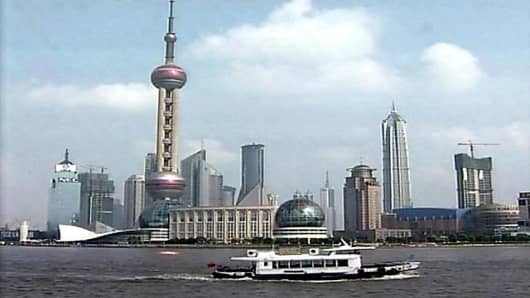The center, which is part of the National Development and Reform Commission, the top
economic planning agency, predicted consumer price inflation would drop to about 4.5 percent for all of this year from an estimated 4.7 percent in 2007.
The third and fourth quarters of 2007 saw the peak of food price inflation, and food prices should now rise more slowly as agricultural investment and production pick up, the centre
said.
However, producer price inflation -- prices at factory gates -- is actually expected to rise, to 3.5 percent from 2.9 percent. The center cited rising prices of energy, raw materials and labour, and said that overall, industrial profits would trend downwards this year because of such pressures.
Growth in China's trade surplus will slow this year given overseas protectionism, uncertainty about the strength of the U.S. economy, and policy steps taken by Beijing such as the
abolition of export tax rebates and faster appreciation of the yuan, the center forecast.
It estimated the trade surplus at $328.4 billion this year, up 22.5 percent from $268.0 billion in 2007. That would represent a slower rise than last year's estimated 51 percent leap of the surplus.
China's export growth is expected to slow to 19.0 percent from 25.7 percent in 2007, helping to slow growth in urban fixed asset investment to 24.0 percent from 26.3 percent, the center said.
Investment in the real estate sector is forecast to ease to 25.0 percent growth from 29.5 percent
The center's major forecasts were broadly in line with previous statements by other government officials and agencies.


